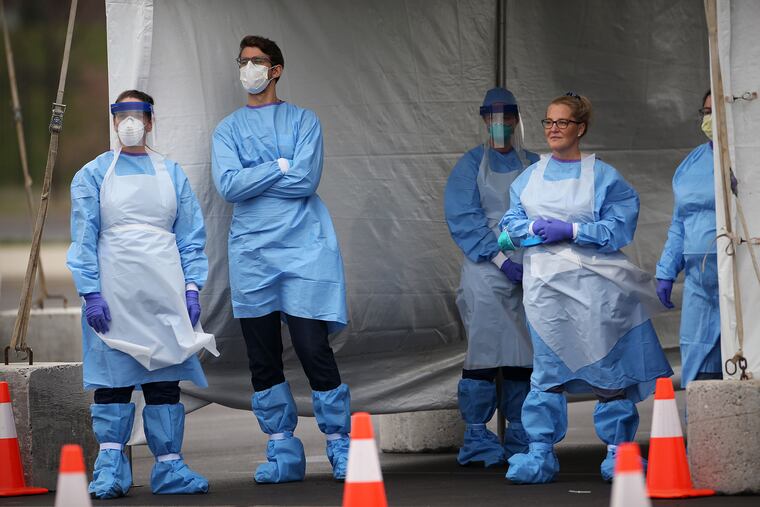Are coronavirus reinfections a true concern? Experts say it’s unlikely, but immunity is still an open question
Experts say that evidence of coronavirus reinfections is still unclear. Long-term immunity is also an open question, but it doesn't spell the end of hope for protection against infections.

For all the fear that the coronavirus has caused, one question that has caused fresh alarm is whether it’s possible to get COVID-19 more than once.
In countries including the United States, India, Israel, Iran, and Bolivia, there have been reports of coronavirus reinfections — people who test positive for COVID-19, recover and test negative, then months later reportedly test positive again.
There is still much that is not understood about immunity to the novel coronavirus, and reinfections have not been studied much, which makes it challenging to definitively address the possibility of reinfection with COVID-19, experts say.
“Nobody really knows yet. So far there have only been individual reports,” said Brian DeHaven, assistant professor of biology at La Salle University.
Among the explanations for why some may test positive months after recovery: Some people with COVID-19, dubbed “long haulers” may suffer from long, persistent infections and symptoms. For other cases, the tests may not always be accurate.
“Based on what we know from other viruses, it’s possible these reports are misleading test results,” DeHaven said.
Viruses have a “limit of detection” — thresholds at which the amount of a virus can be detected. For instance, a negative coronavirus test result doesn’t necessarily mean no infection. Rather, it suggests there is no detectable infection, and it’s possible for levels of infection to hover around the limit and be detectable, non-detectable, and then detectable again in the same person.
In Korea, it’s been suggested that some false-positive test results may be caused by material from dead viruses — as fragments of these dead cells require a longer time to be cleared from the body.
Some viruses, such as herpes, can also be latent — which means they stay dormant within cells, and reactivate later, causing disease. There is currently no evidence to suggest this might be the case for COVID-19.
» FAQ: Your coronavirus questions, answered.
What has fueled some of the alarm surrounding reinfections concerns antibodies — specific molecules naturally produced by the body’s immune system following infections to protect against re-infections. Several recently published studies suggest that antibodies to COVID-19 decline substantially within months after infections, which might bolster the possibility of reinfection.
These findings may not be as discouraging as they’ve been made out to be.
“One big caveat is whether antibodies are the full story in protecting against COVID-19,” said Otto Yang, professor of medicine and infectious diseases at University of California, Los Angeles. “Another caveat is whether the antibody testing we are doing reflects those [antibodies] that are useful for protection.”
Antibodies may be a good marker of immunity, but it’s not always the case, and they’re expected to decline over time.
“After all infections, your antibody levels go down,” DeHaven said. “You would expect that to happen. For coronaviruses in general, the [antibody] levels go down relatively quickly for reasons we don’t understand very well.”
Still, experts offer hope against coronavirus reinfections: Antibodies are not the only tool the body uses to protect itself.
“Protection against an infection is mediated by other arms of the immune system,” Yang said.
One such arm is T cells, which among many functions, directly kill infected cells in the body.
“T-cell responses tend to be very involved in controlling the severity of infections in general,” Yang said. “It’s possible that if someone gets re-infected with COVID-19, any reinfection could be much milder than the first.”
In one study of a different coronavirus published in 1990, antibodies in volunteers who had been infected with the virus declined over a year. When the volunteers were re-infected with the same virus, they all developed some symptoms, but the infection was less severe. For the novel coronavirus, studies in monkeys have also shown that there is protection from reinfections up to 28 days after the first infection.
Yang added that so far, the reports of people getting reinfected aren’t well-documented and verified.
Even if immunity to the novel coronavirus doesn’t last for years, it doesn’t spell the end of hope for immunity.
“That’s why some vaccines have to be given as boosters,” Yang said. “People with severe disease may have much higher levels of antibodies that last longer. Maybe immunity is a dose-related thing and a vaccine can compensate from that. It’s an open question right now.”